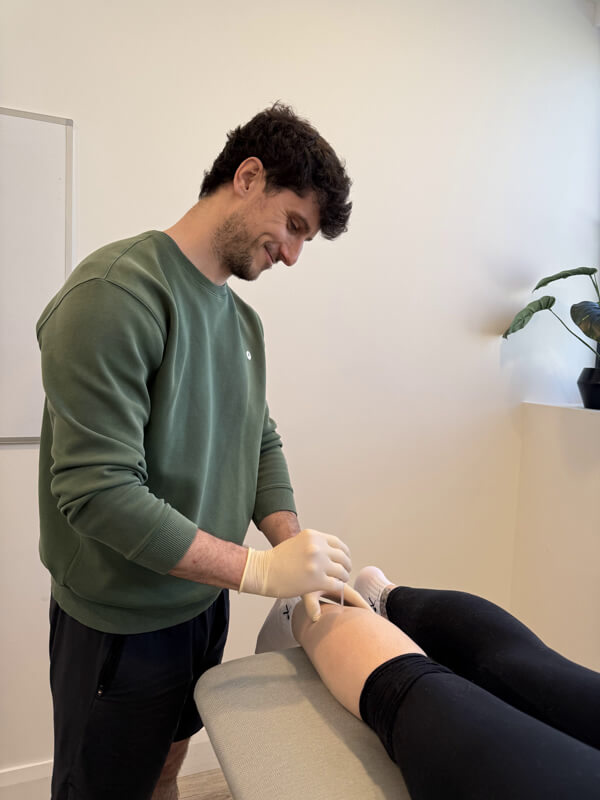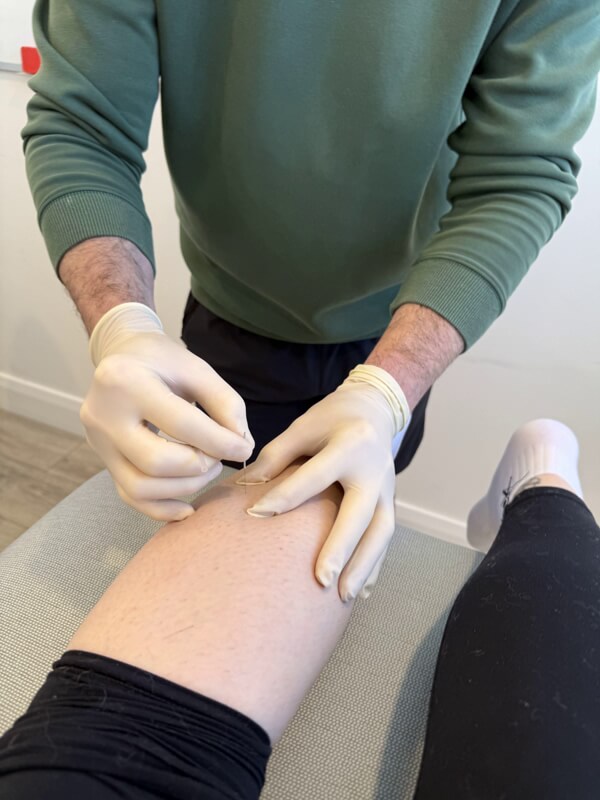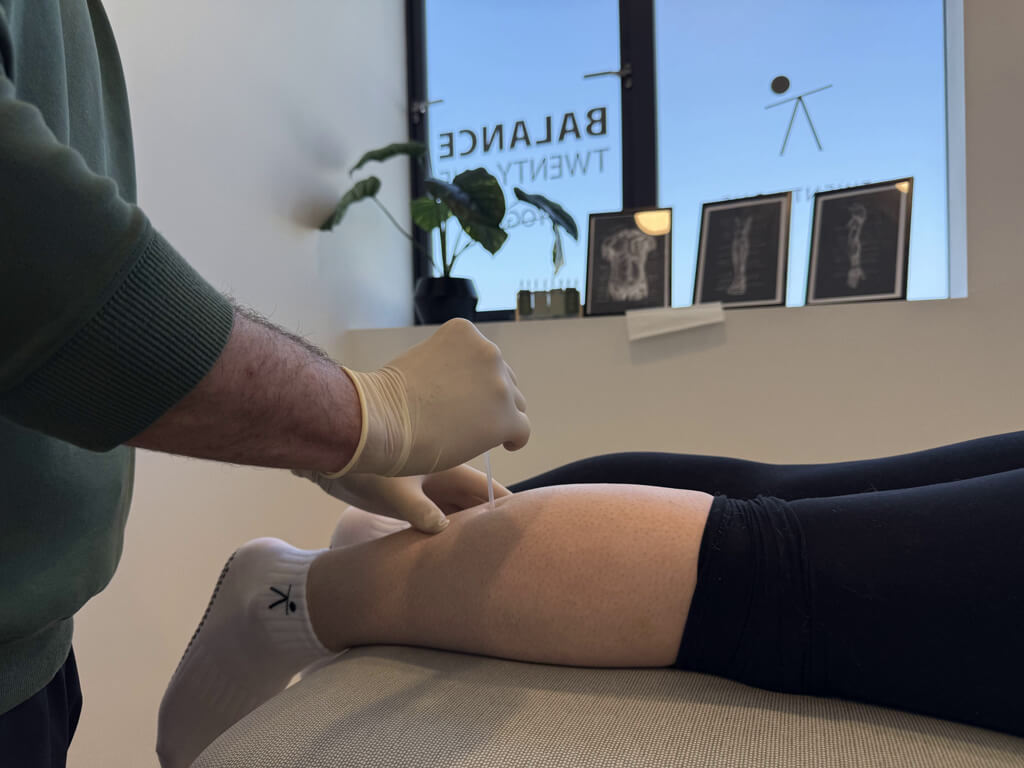Dry Needling
Dry needling uses super thin needles to relax tight muscles and ease pain. It targets trigger points—those knotted spots that cause aches and stiffness. It’s quick, safe, and often brings fast relief, especially for sore backs, necks, or sports injuries. Many people feel looser and move better after just a session or two.
Dry needling can be very beneficial in the treatment of many conditions including:
- Back and neck pain
- Buttock and leg pain
- Hamstring strain
- Knee pain
- Calf tightness
- Headaches
- Arm pain


Dry needling is a procedure whereby acupuncture needles are inserted into the skin and muscle directly at a myofascial trigger point. A myofascial trigger point is often more commonly referred to as a ‘knot’. They are tender nodules in a taut band of muscle that are generated by overuse, overstretching or overloading of a muscle.
There are 2 types of trigger points:
Active - One that causes pain and symptoms the patient recognises. These will be reproduced with pressure on the trigger point.
Latent - One that is only tender when pressure is put on it. The patient will not recognise this as their pain. Factors such as trauma, temperature changes and/or poor posture can contribute to the development of latent trigger points.
When the needle is properly placed this elicits a twitch response, releasing the trigger point and helping to ease pain.
While the insertion of the acupuncture needles themselves are normally barely felt, the local twitch response required to release the trigger points may produce a very brief pain response. Many patients describe this as being similar to a small electric shock or a cramping sensation.
It is important to note that dry needling is not the same as acupuncture. Dry needling is strictly based on western medicine principles of treating myofascial trigger points, which are different to traditional acupuncture points.
Dry needling can be very beneficial in the treatment of many conditions including;
- Back and neck pain
- Buttock and leg pain
- Hamstring strain
- Knee pain
- Calf tightness
- Headaches
- Arm pain
If you are looking for more information on dry needling in Ireland or a dry needling Physiotherapist in Kerry, please get in touch today.

